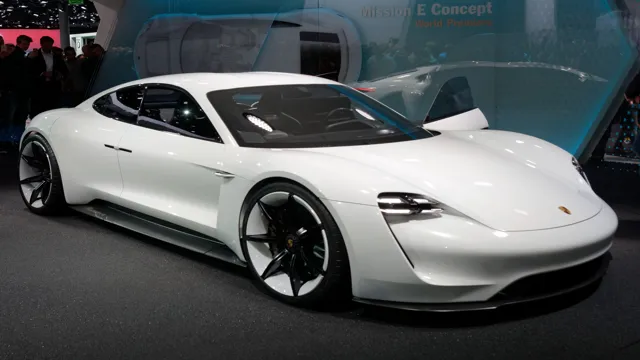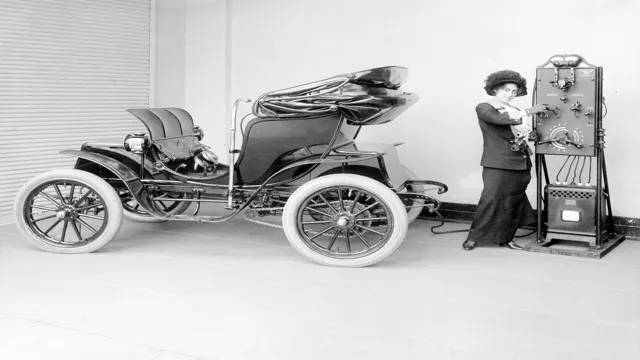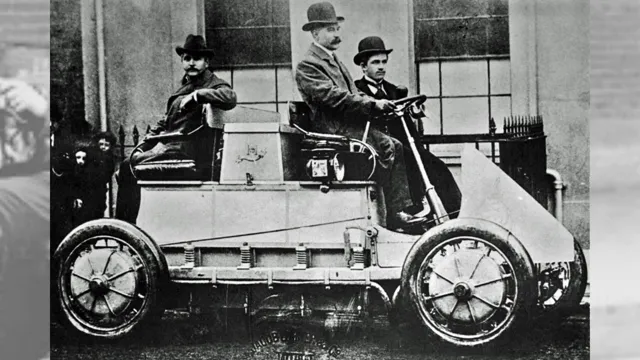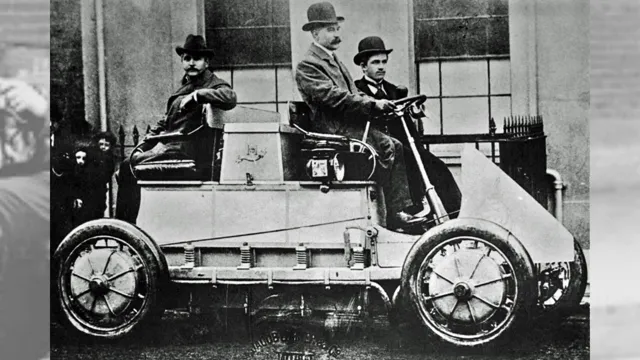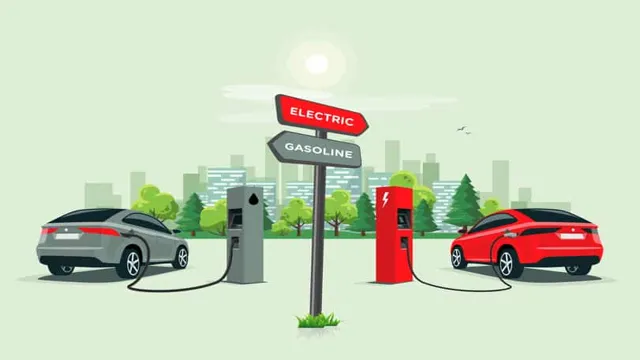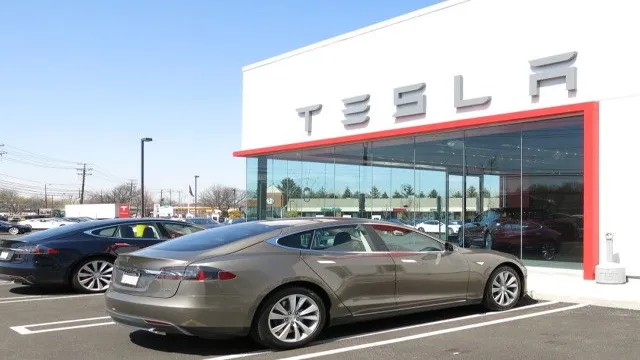Uncovering the Evolution of Porsche Electric Cars: A Fascinating Journey Through History
Porsche is an iconic automaker known for its high-performance sports cars and luxurious sedans. Although the brand has long been associated with gasoline-powered engines, it has recently become one of the most prominent players in the growing market for electric vehicles. The history of Porsche electric cars is an interesting story of innovation and adaptation that showcases the brand’s commitment to sustainability and performance.
From the early experiments with electric drive systems to the current lineup of hybrid and all-electric models, Porsche has remained at the forefront of this exciting trend. In this blog, we’ll take a closer look at the evolution of Porsche’s electric cars and explore how this legacy continues to shape the brand’s future.
Early Beginnings
Porsche has been at the forefront of automotive excellence for decades, and their venture into electric cars has only solidified their reputation. The earliest example of Porsche exploring the concept of an electric car was in the 1980s, when they created a prototype known as the “LEC.” This vehicle boasted a range of 50 miles and a top speed of 60 mph- not very impressive by today’s standards, but a groundbreaking innovation at the time.
Fast forward to the mid-2010s, and Porsche began seriously stepping up their electric game. The Porsche Mission E concept was unveiled in 2015, with promises of impressive power and range. The Mission E eventually evolved into the Porsche Taycan- a powerful electric vehicle that boasts over 700 horsepower and can reach 0-60 in under three seconds.
Porsche’s commitment to creating electric cars that don’t sacrifice speed or performance is evident throughout their history. It’s no wonder that when people talk about the future of electric cars, Porsche is always part of the conversation.
Ferdinand Porsche’s Involvement
Ferdinand Porsche is a name synonymous with automotive engineering and design. Porsche’s early beginnings can be traced back to his early childhood, where his father, Anton Porsche, owned a workshop that specialized in electrical engineering. It wasn’t long before Ferdinand Porsche developed an interest in mechanics and engineering, leading him to pursue an education in these fields.
In 1898, Porsche began his career at Jakob Lohner as an apprentice, where he worked on developing electric cars. He quickly rose through the ranks and became the technical director of the company. Porsche’s ingenuity was evident in his development of the world’s first four-wheel drive racing car, the Lohner-Porsche Mixte Hybrid.
This early success set the stage for Porsche’s future involvement in the automotive industry, culminating in the founding of the iconic sports car company, Porsche AG. Without a doubt, Ferdinand Porsche’s early beginnings set the foundation for his lifelong pursuit of automotive engineering excellence.
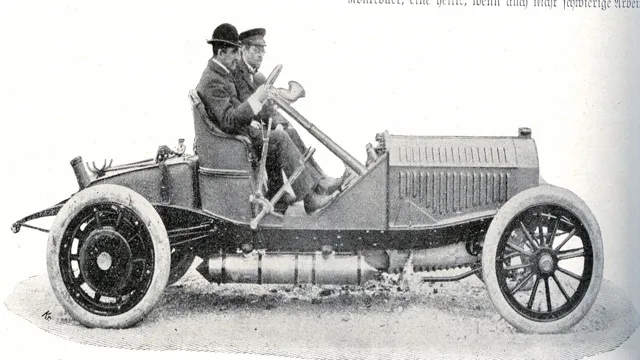
Electric Cars Before the 918 Spyder
Electric cars have been around for much longer than one might assume. These vehicles were first introduced in the 1800s and were powered by batteries that were too heavy to be practical for extended use. However, electric car technology advanced in the 1900s, allowing for more efficient batteries and improved performance.
One notable electric car was the EV1, which was produced by General Motors in the 1990s. Although the EV1 had its flaws, it was a significant step towards the electric car revolution. Another important electric car was the Tesla Roadster, which was released in 200
The Roadster was a game-changer as it was the first highway-capable electric car, with a range of approximately 245 miles per charge. This gave people hope that electric cars could meet their daily driving needs. As the technology continued to improve, we eventually arrived at the hybrid powerhouse that is the Porsche 918 Spyder.
These early electric cars may seem primitive now, but they paved the way for the incredible electric cars we see today.
The Rise of the 918 Spyder
Porsche has been at the forefront of innovation in the automotive industry, and their foray into electric cars is no exception. The 918 Spyder, which made its debut at the Geneva Motor Show in 2010, was a game-changer in the electric car industry. With a top speed of 214 mph and a 0-60 time of just
2 seconds, the 918 Spyder was the fastest electric car in production at the time. Porsche’s electric car history dates back to the 1970s when they experimented with electric powertrains. However, the 918 Spyder marked the first time Porsche had brought an electric car to the market on a large scale.
The 918 Spyder had a gasoline engine in addition to two electric motors, making it a hybrid vehicle, which allowed for an extended range compared to traditional electric cars. The 918 Spyder proved that Porsche was serious about entering the electric car market and paved the way for their future electric car models. Overall, the 918 Spyder was a major milestone in Porsche’s electric car history, one that helped solidify their reputation as a leader in innovation and technology.
Development and Design
If you’re a fan of luxury sports cars, then the Porsche 918 Spyder is a true masterpiece. With its sleek design and exceptional performance, this iconic supercar delivers an adrenaline-pumping driving experience like no other. Featuring a hybrid powertrain that combines a high-revving, naturally aspirated V8 engine with two electric motors, the 918 Spyder boasts an impressive output of 887 horsepower and a top speed of over 211 mph.
Its advanced aerodynamics, lightweight construction, and cutting-edge technology make it an engineering marvel that pushes the boundaries of what’s possible in automotive design. From its carbon fiber monocoque to its active aerodynamic components, the 918 Spyder represents a new standard of innovation and excellence in the world of luxury sports cars. Whether you’re cruising along the highway or tearing up the track, the Porsche 918 Spyder is a force to be reckoned with.
Performance and Features
The 918 Spyder is the epitome of what high-performance supercars represent. This marvel of engineering boasts a 6-liter V8 engine and hybrid electric motors that output a combined 887 horsepower and propel the vehicle from 0-60mph in just
2 seconds. The 918 Spyder takes advantage of its advanced technology with impressive features like its active aerodynamics and torque vectoring system. The car’s electric motors provide instant torque delivery, which allows for a seamless and exhilarating driving experience.
The full carbon fiber bodywork, liquid-cooled battery, and hybrid powertrain system all come together to make the 918 Spyder one of the most advanced and innovative cars on the market. Its unparalleled performance and features put it in a class of its own and have made it an instant classic. There’s no denying that the 918 Spyder is a masterpiece of automotive design and engineering that pushes the boundaries of what’s possible, leaving a lasting impression on everyone who has the privilege of experiencing its power and technology firsthand.
Critical Reception and Industry Impact
The 918 Spyder by Porsche was an instant hit when it was released in 2013, garnering critical acclaim and industry recognition for its impressive performance and sleek design. Many experts hailed it as a game-changer in the world of hybrid sports cars. Its powerful V8 engine coupled with electric motors allowed it to go from 0-60mph in under 3 seconds, making it one of the fastest road-legal vehicles at the time.
This outstanding performance earned it the title of “Fastest Car of the Year” by Top Gear magazine. The 918 Spyder showcased Porsche’s commitment to developing sustainable and high-performance vehicles, paving the way for future models like the Taycan. Its success also led to increased demand for hybrid and electric cars, as competitors like Ferrari and McLaren also started developing their own hybrid supercars.
Overall, the 918 Spyder’s rise to prominence demonstrated that eco-friendly cars can be just as thrilling and powerful as their gasoline-powered counterparts.
Porsche’s Electric Future
Porsche, one of the world’s most renowned car manufacturers, has been making significant strides towards an electric future. While the company’s history may have been rooted in gasoline-powered cars, Porsche has been working on electric motors for over a century. As early as the year 1900, Ferdinand Porsche himself built an electric car.
It’s only in recent years that Porsche has fully committed to its electric vision, with models like the Taycan leading the charge. The Taycan is more than just an electric car – it’s a masterful piece of engineering that delivers breathtaking performance. With a 0-60mph time of
6 seconds, it’s clear that Porsche has no plans of sacrificing power and speed as it transitions to electric. The company has also made commitments to sustainability, aiming for carbon neutrality in its vehicles, factory, and supply chain by 2030. Porsche’s electric future is looking bright, and it’s exciting to see where the company will go from here.
Concepts and Prototypes
Porsche’s electric future is certainly an exciting concept that has been on the radar for some time now. The luxury sports car manufacturer has been developing electric prototypes for years, and the brand’s recent Mission E concept car has been a major talking point. The Mission E is a stunning electric vehicle that boasts a powerful electric motor, impressive speed, and an impressive range.
Porsche’s electric cars are also set to be fitted with the latest technology, including advanced batteries and charging systems, which should make them more efficient and reliable than ever. This move towards electric power is exciting not only for Porsche enthusiasts but for the wider automotive industry, as more and more major manufacturers look to embrace electric vehicles. The future is electric, and it looks like Porsche is leading the way.
Models and Releases
Porsche, Electric Future Porsche is blazing a trail towards an exciting electric future, as they prioritize sustainable technology in their car models and releases. The luxury car brand has been on a mission to make their electric cars more accessible and practical, with the upcoming release of their Taycan Cross Turismo, a versatile electric car designed for all types of terrains. This model is set to take the electric car industry by storm, with its impressive range and innovative features.
Porsche’s commitment to sustainability is admirable, as they aim to reduce carbon emissions and create a greener future for us all. Their electric models come with a sleek and futuristic design, while still maintaining the performance and luxury that Porsche is known for. It’s a clear indication that electric cars can be just as exciting and powerful as traditional cars, without compromising on efficiency.
As the world evolves towards sustainability, Porsche is leading the way with their electric future.
Conclusion
In conclusion, Porsche’s foray into the world of electric vehicles may have been a shock to some die-hard fans, but it was a necessary step forward in an ever-evolving automotive industry. With their history rooted in precision engineering and a passion for innovation, it comes as no surprise that Porsche has taken the electric car market by storm. While some may argue that a silent Porsche lacks the rumble and roar of its gasoline-powered counterparts, it’s hard to deny the speed, efficiency, and environmental benefits of going electric.
Who knows, with the rapid developments in battery technology and sustainable energy sources, the future may hold even more electrifying surprises from this iconic German automaker. As Ferdinand Porsche himself once said: “In the beginning, I looked around and could not find the car I dreamed of, so I decided to build it myself.” And with the Porsche Taycan leading the charge, it looks like he and his namesake brand have done just that.
“
FAQs
What was the first electric Porsche car?
The first electric Porsche car was the Taycan, which was launched in 2019.
What inspired Porsche to create electric cars?
Porsche was inspired to create electric cars due to the increasing demand for sustainable mobility and to reduce emissions.
How has the Porsche electric car impacted the automotive industry?
The Porsche electric car has been a groundbreaking development in the automotive industry, as it has introduced a new era of sustainable and efficient transportation.
What are some of the unique features of the Porsche electric car?
The Porsche electric car has several unique features, including instant torque, regenerative braking, and a sleek, modern design that is both aerodynamically efficient and visually appealing.
